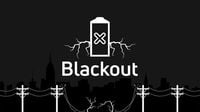On April 28, 2025, a large-scale power outage struck Spain and Portugal, beginning at 10:34 AM UTC and causing widespread disruptions across both nations. The blackout affected traffic, forced the closure of numerous retail businesses, and disrupted daily life for millions. Reports indicated that parts of France were also impacted, with minor disruptions noted.
The Portuguese grid operator attributed the outage to a fault in the Spanish electrical grid, specifically citing an "induced atmospheric oscillation" caused by extreme temperature fluctuations in Spain's interior. This phenomenon led to instabilities in the 400-kilovolt high-voltage lines, triggering synchronization errors within the broader European grid.
Cloudflare, a global provider of network and security services, monitored the situation closely and analyzed the effects of the outage in real-time. According to their data, internet traffic from local providers such as NOS, Vodafone, MEO, and NOWO plummeted within hours of the blackout. Traffic from MEO-MOVEL (AS42863) initially surged as users switched to mobile devices to seek information, but this increase was short-lived, with mobile data traffic eventually dropping to about half the volume of the previous week.
In the major cities of Lisbon and Porto, there was an initial sharp decline in internet traffic, followed by a gradual recovery. However, this recovery was inconsistent compared to other regions, where traffic levels stabilized more quickly. Cloudflare's analysis revealed significant regional differences in how the outage affected internet infrastructure, with some areas experiencing more severe disruptions.
The average download speed in Portugal fell dramatically from approximately 40 Mbit/s to just 15 Mbit/s, while latency increased from around 20 milliseconds to 50 milliseconds. This deterioration in network performance was likely due to the overload on the remaining operational connections.
Additionally, the outage led to a decrease in the reported IPv4 and IPv6 address space. Approximately 300 IPv4 /24 blocks (around 1.2%) were reported missing, while the number of IPv6 /48 blocks dropped from 17,928,551 to 16,355,607, a decrease of about 9%. This decline began to occur after 4:00 PM UTC, possibly due to the depletion of backup power supplies.
Reports from neighboring countries indicated that parts of Andorra and France were also affected. In Andorra, the blackout was brief, lasting only a few seconds, as the electricity was quickly restored through automatic reconnections from France. In France, minor disruptions were reported in the Basque region, but the power was restored within minutes.
Interestingly, Orange Maroc, a Moroccan telecommunications provider, reported significant internet traffic disruptions following the blackout, with traffic from their network declining sharply around noon UTC and ceasing entirely by 3:00 PM UTC.
As the situation developed, the Spanish Prime Minister Pedro Sánchez announced that the power supply was being restored, with over 99% of connections in Spain back online by 6:00 AM on April 29, 2025. The majority of Portuguese households also regained electricity around the same time.
Despite the rapid restoration of power, officials were still investigating the cause of the outage. Initial speculations included the possibility of a cyberattack, which was fueled by various social media rumors. However, both the Portuguese and Spanish authorities dismissed these claims, with Portugal's acting Prime Minister Luís Montenegro stating that there was no concrete evidence to support the notion of a cyberattack. He emphasized that, while nothing could be entirely ruled out, the available evidence did not indicate malicious intent.
In Spain, the situation was further complicated by reports of a fire on a French-Spanish high-voltage line, which local media indicated might have contributed to the outage. The Spanish intelligence service CNI was also cited in reports suggesting a potential cyberattack, although this remained unconfirmed.
As the power was restored, public transport systems began to resume operations, albeit not on schedule. In Madrid, subways and trains were back in service, while the city administration organized additional buses to aid commuters. Airports in both Spain and Portugal reopened, but delays were still prevalent as systems normalized after the outage.
In the aftermath of the blackout, the Spanish Prime Minister highlighted the unprecedented nature of the event, noting that over 15 gigawatts of electricity were lost in mere seconds. He urged caution regarding speculation about the causes, emphasizing that all potential explanations were being thoroughly examined.
As of April 29, 2025, the situation has stabilized significantly, with both countries' power grids reported as "perfectly stabilized". The Portuguese national operator REN confirmed that all transmission network substations had been restored, allowing essential services like healthcare and education to resume normal operations.
While investigations continue, the incident serves as a stark reminder of the fragility of modern infrastructure and the potential for widespread disruption from both natural phenomena and technical failures. The implications of such outages extend beyond immediate inconveniences, affecting everything from public safety to economic stability.




